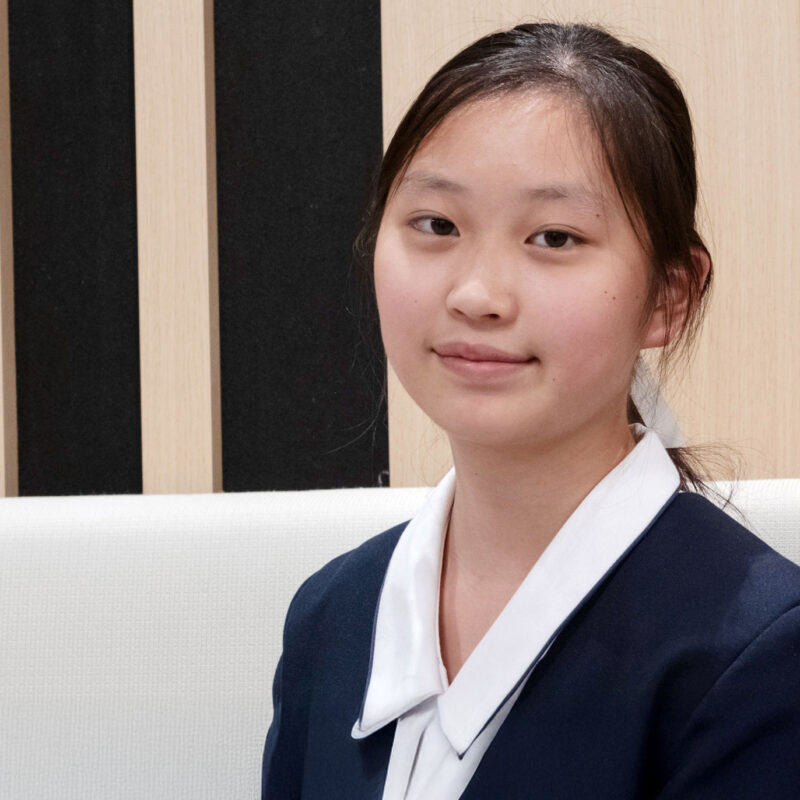This week, horrific footage was circulating for a period on Tik Tok, a social media platform overwhelmingly used by young people. As part of Meriden’s proactive approach to keeping students safe online and the School’s ongoing commitment to caring for the psychological and emotional wellbeing of young women, Meriden Principal, Dr Julie Greenhalgh, has written to parents to ensure a whole-community approach to tackling the ever-present and evolving dangers of the online world.
In yesterday’s Newsletter article to Meriden parents, Dr Greenhalgh said the School is ever-vigilant in its multi-pronged approach to online safety, which includes regular, explicit teaching around online safety and a ban on mobile phone use during the school day. However, Dr Greenhalgh reminded parents that families have an important role to play in working with the School to support the online safety of young people.
Dr Greenhalgh said she was disturbed by the news of the dangerous content, which was flagged by School staff when online circulation began.
“The gruesome imagery was totally unsuitable for children (and probably adults!) and I venture to suggest that any child who watched this Tik Tok segment will be adversely affected for some time,” she said.
Dr Greenhalgh advised all parents to take pre-emptive steps to shield their daughters from dangerous content, particularly parents of students in Years 3 to 6, who are underage to register for social media accounts but who have been known to pressure parents to allow them to venture online on social platforms.
“The content on social media platforms is often unhelpful and even dangerous,” Dr Greenhalgh said.
“Even text messages and emails between children when they are unsupervised at home can be cruel. Rarely is a student, aged younger than 16 years, let alone 13 years, mature enough to deal responsibly with social media. I can vouch that a girl’s mobile phone will become a problem for her parents at some stage, so delay the grief for as long as possible. If there are small issues with a mobile phone in the younger years, these problems will reach gigantic proportions in the older years.”
Dr Greenhalgh said one of the most important strategies for keeping young people safe online is for parents to be in control of students’ mobile phones and for them to refuse to succumb to pressure placed on them for the latest technologies and apps.
“From the outset, make it very clear that you, the parent, own the phone. This means that you might lend it to your daughter as she travels to and from school, but when she comes back home, the phone is returned to you. As the owner of the phone, you have the right to access it whenever you like; its password needs to be known by you,” Dr Greenhalgh said.
“Furthermore, be aware that your daughter does not need a smart phone. You may choose to purchase a ‘dumb’ phone that allows her to contact you on her way home from school if necessary, but resist the urge to purchase a smart phone for her.”
Dr Greenhalgh said even older students need clear boundaries around phone use for their wellbeing and protection.
“On no account should the phone be kept in a girl’s bedroom. At night time, it needs to be kept in the kitchen, perhaps on the charger. The mobile phone that is allowed to stay in a girl’s bedroom becomes a source of distraction all through the night. This continual disruption reduces a girl’s deep sleep, adversely affecting her mood, increasing her anxiety and reducing her capacity to learn at school. Parents should put clear rules in place that ban the phone as often as possible. Never in the car, never during homework time, never at family gatherings. And lastly, never allow your daughter to dishonestly increase her age in order to gain a social media account.”
“For the wellbeing of their daughters, parents need to be in charge of their daughter’s mobile phone. So I encourage all Meriden parents to stay firm. If necessary, blame me!” Dr Greenhalgh said.
Dr Greenhalgh said the ubiquitousness of mobile phones is of concern for the School community and for Australian society in the long-term.
“Last weekend, I took note of the passengers in cars that passed the local shopping centre. I did not see any teenager talking to their parents. Rather, they were all on their phones, usually with headphones in their ears too. Meriden parents need to hear from their daughters; daughters need to hear from their parents; family conversation needs to be strongly encouraged,” she said.


